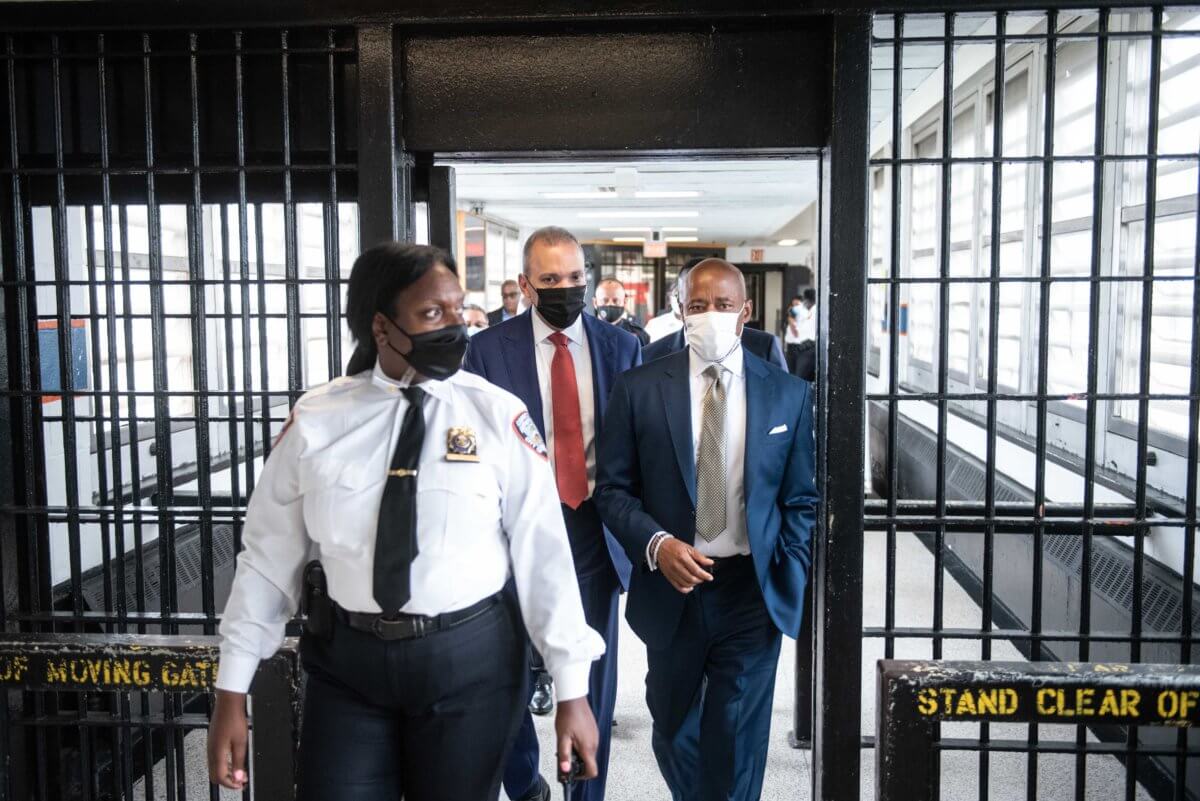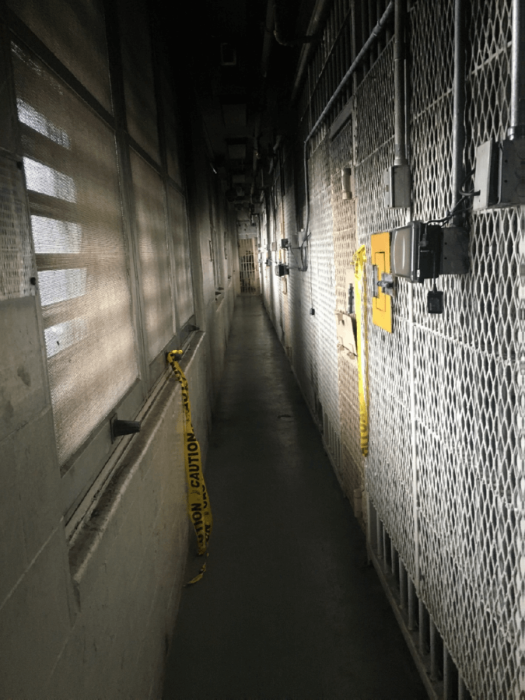Michael Nieves’ horrific death has the grotesque distinction of being the thirteenth life lost this year due to incarceration on Rikers Island. He was known to have serious mental illness, and his prior suicidality was well-documented. When previously found incapacitated, he was sent to a forensic hospital, and when returned to jail, housed in a psychiatric unit. Yet correction officers on a unit requiring “specialized training” watched him bleed out after he slashed his own throat. This happened because despite everything vast bodies of research teach us, it is still not popular, profitable, or politic to admit that incarceration can be fatal for people like Michael Nieves.
We are morally obligated to address the challenges of mental illness by assuring community-based support throughout a person’s life. If there is criminal legal system involvement later because of such failures, then we must advocate for treatment, not jail. As public defenders in New York City, we represent thousands like Michael Nieves. They are mostly poor people of color, often identifying within LGBTQIA or other vulnerable populations, underserved their entire lives. Many were raised in under-funded public housing or lived in unsafe shelters. Their lack of educational and employment opportunities, and inability to navigate life without the harms of racism and discrimination, were largely ignored. Indeed, more than half of our incarcerated clients have mental illness and struggle with substance dependence. They are among the hundreds of thousands of New Yorkers receiving no treatment, whose basic needs are overlooked
When society’s underinvestment leads to entanglement with the legal system, they are packed into jails and prisons despite the ugly legacy of people as chattel. They languish at Rikers, which houses more people with mental illness than any psychiatric hospital in the United States. Uncontrolled violence, rampant drug use, corruption and staff absenteeism interrupt crucial services and destabilize and traumatize them. Previously incapacitated clients “restored to fitness” decompensate after returning to Rikers’ chaos. Their mental health issues worsen while exposed to the trauma of incarceration. Yet too many in need of treatment are offered only carceral dispositions. When released from jail or prison without stable housing, employment, or mental health support in place – yet with the stigmatizing consequences of a criminal conviction- they are far worse off. They resort to drug use, a revolving door of psychiatric hospitalizations, and are almost always re-arrested, often for more serious charges, endangering public safety.
Social science confirms that jail begets more crime. Incarceration is also more expensive than treatment, costing $556,539 per person per year in New York City. However, prevailing research substantiates that mental health and drug courts significantly lower rates of recidivism and are more cost-efficient. Every $1 invested in treatment courts yields $2.21 in savings. Diversion also frees capacity in courts to focus on the most serious cases, furthering an efficient administration of justice. Yet even with this knowledge, deaths in detention due to under-funding of community-based treatment, over-policing, and mass incarceration continue. Both individual and collective humanity is lost when we do not remedy these systemic failures.
Some mental health courts have existed in New York for years, but remain uncodified, resulting in their unequal application and administration. However, the pending Treatment Not Jail Act affords equal justice for all New Yorkers statewide. By improving a 2009 bi-partisan drug court law, judges – guided by clinical evaluations which ensure proper treatment and address public safety concerns – are empowered to offer treatment dispositions to any person with mental health or substance use issues that contributed to their court involvement. The Act requires court-monitored, community-based treatment, due process protections, and incorporates proven harm reduction methods which save lives. Currently there are only 31 existing mental health courts throughout New York State. The Act ensures that more individuals throughout New York receive treatment, making us all safer and healthier.
Our humanity lies bleeding out in front of us, while we look on, failing to act, despite available solutions. There will be more harm to people like Michael Nieves unless we improve our practices where mental health and the criminal legal system intersect. We must pass the Treatment Not Jail Act.
Katherine LeGeros Bajuk is a mental health attorney with New York County Defender Services. Jeffrey Berman is a mental health attorney with The Legal Aid Society.










